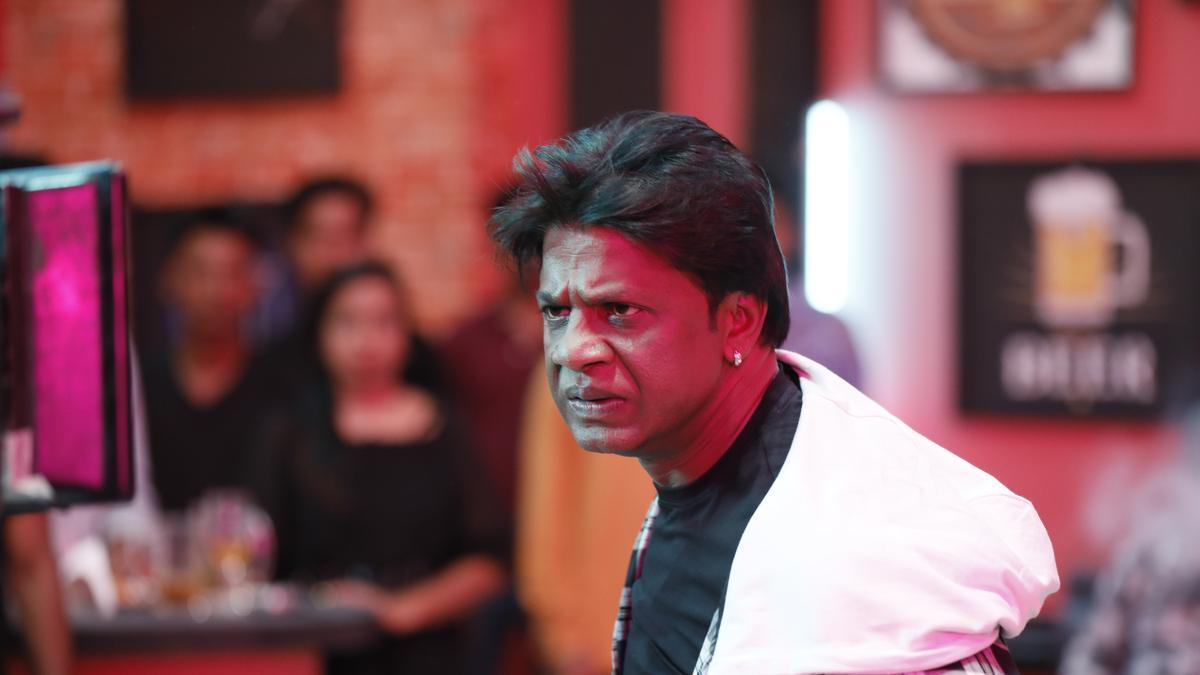
Kannada star Duniya Vijay has broken the sophomore slump with his latest film, Bheema. Using a strategy reminiscent of his successful directorial debut, Salaga, Vijay has once again catered to his core audience, breathing new life into his two-decade-long career through his dual role as both actor and director.
Much like Salaga, Bheema delves into the dark world of crime drama. The film, set in the slums of Bengaluru, explores the perilous consequences of youth substance abuse. Rather than relying on clichéd portrayals of poverty-stricken villains, Bheema offers a nuanced depiction of distinct characters from these areas.
Vijay worked with 60 new actors to construct an authentic representation of the lifestyles of people living in the slums. “When you set a film in a particular environment, it’s very important to depict the realities that exist there,” says Vijay. His attention to authenticity has resonated particularly with young film-goers from underprivileged and lower middle-class backgrounds, who form the bulk of his fan base.
Vijay’s rise to stardom began with the 2007 blockbuster Duniya, where he played a struggling labourer in a stone quarry trying to build a tombstone for his mother’s grave. This portrayal of a marginalized man’s fight for justice has since fueled his popularity among young fans who relate to the adversities faced by his characters.
Filmmaker Suri, who originally launched Vijay to stardom with Duniya, explains the actor’s enduring appeal with a line from the film: “Just because someone is dark and poor, he or she isn’t a thief or a corrupt person.” According to Suri, Vijay aspires to convey to his fans that a real-life hero can be one of them.
In preparation for his directorial ventures, Vijay piqued his fans’ interest with highly engaging and funky songs by Charan Raj. He even collaborated with singers from the Siddi community and Jenu Kurubas—an experiment that proved successful. This connection with marginalized communities, combined with Vijay’s vocal advocacy of Ambedkarism, has earned him admiration from both industry insiders and fans.
“When you talk about Ambedkar, people often associate him with one community. However, for me, Ambedkar represents equality for all groups,” Vijay explains. “In Bheema, I don’t just show the plight of the poor. Even children from affluent families face the threat of drug addiction.
.”
In both Salaga and Bheema, Vijay has carefully addressed the multifaceted nature of slum communities in Bengaluru, particularly focusing on the Tamil-speaking population who consider themselves “Tamil-speaking Kannadigas.”
Bheema features a funeral song for Vijay’s character sung by Tamil singer ‘Gana’ Muthu. Gaana, a genre of music born in the narrow lanes of north Chennai, offers an escape from poverty for the subaltern. Funeral singers transitioned this genre into Tamil film music. In the film, the death of a prominent character is marked by song and dance, with the protagonist drinking—a procession reflecting customs in these neighborhoods, showing their unique ways of paying respect to the deceased.
Despite Bheema’s earnest attempts to convey a message, it occasionally stumbles in portraying societal issues. While aiming to highlight the detrimental effects of violence, drugs, and alcohol on youth, the film sometimes skirts dangerously close to glorification rather than focusing on the consequences.
Suri’s films, including Jackie (2010) and Kadipuddi (2013), showcase protagonists who, despite embodying certain commercial cinema hero traits, remain vulnerable and perfectly fit the milieus they come from. “My style of representing society comes from my learnings and mentorship. I have worked with Jayanth Kaikini and Surendranath, who have shaped my perspective,” says Suri. He believes Vijay will grow in his portrayal, noting that Bheema is only his second film as a director.
Vijay defends his creative choices in Bheema, emphasizing moments like when a young boy challenges the hero to quit his vices, prompting a moment of realization and change. “Some of my choices are driven by the demands of commercial cinema. A ‘mass’ crime thriller needs to cater to a broad audience,” he explains.
Vijay’s efforts in marketing Bheema also played a crucial role in its success. Film critic Kairam Vaashi commends Vijay’s ingenuity in promotions, noting instances like conducting an interview in an unexpected setting like a graveyard and collaborating with contemporary actor Ganesh. “Vijay is extremely inventive about marketing his film, treating it as an extension of shooting a movie,” Vaashi remarks.
While sticking to a particular formula has undoubtedly solidified Vijay’s directorial status, there’s hope that he will continue to innovate in his storytelling to stay relevant.












